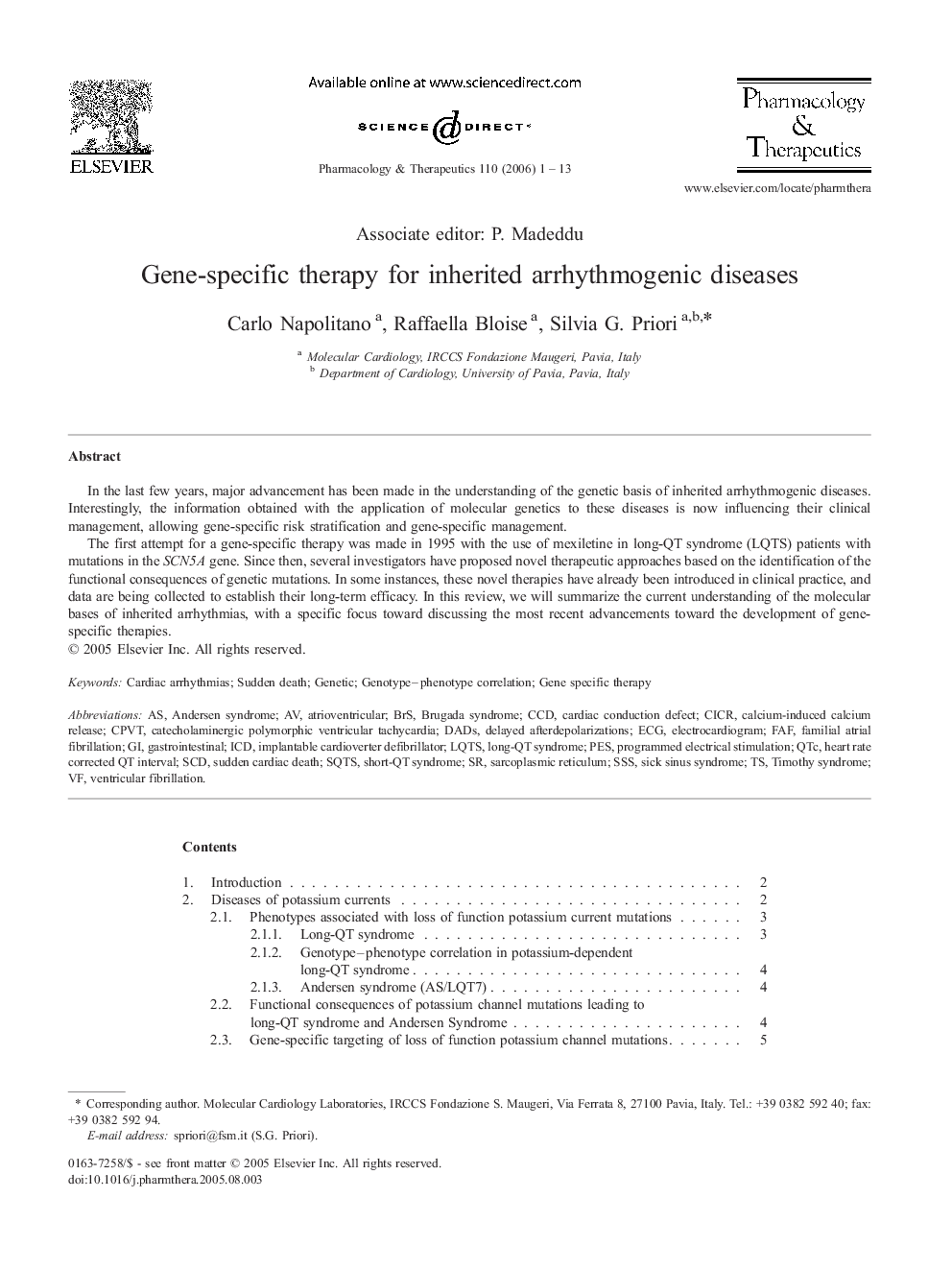| Article ID | Journal | Published Year | Pages | File Type |
|---|---|---|---|---|
| 2564339 | Pharmacology & Therapeutics | 2006 | 13 Pages |
In the last few years, major advancement has been made in the understanding of the genetic basis of inherited arrhythmogenic diseases. Interestingly, the information obtained with the application of molecular genetics to these diseases is now influencing their clinical management, allowing gene-specific risk stratification and gene-specific management.The first attempt for a gene-specific therapy was made in 1995 with the use of mexiletine in long-QT syndrome (LQTS) patients with mutations in the SCN5A gene. Since then, several investigators have proposed novel therapeutic approaches based on the identification of the functional consequences of genetic mutations. In some instances, these novel therapies have already been introduced in clinical practice, and data are being collected to establish their long-term efficacy. In this review, we will summarize the current understanding of the molecular bases of inherited arrhythmias, with a specific focus toward discussing the most recent advancements toward the development of gene-specific therapies.
